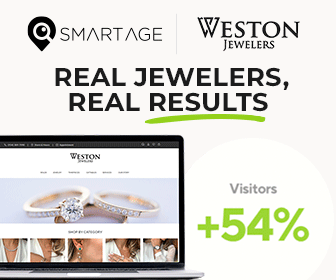Articles and News
Luxury Institute: Millennials Care More About Long-Term Value Of Luxury Than Boomers May 26, 2014 (0 comments)

New York, NY—Millennial consumers may be first to embrace the newest and latest technology, and fast fashion from the likes of H&M and Zara, but when it comes to luxury, they’re actually more likely than their older counterparts to value the history and long-term investment value of a luxury brand. They also are more likely to be swayed by advertising from a trusted source, and they expect both a personal relationship and reward from the brands or retailers they do business with.
According to the most recent Wealth Report published by The Luxury Institute, the core definition of luxury—superior product attributes and customer service—remains consistent across the Boomer, Gen-X, and Millennial cohorts. The Luxury Institute surveyed consumers 21 years of age and older from U.S. households with minimum annual income of $150,000, about features they consider important in luxury brands and specific triggers that influence spending decisions. Median annual income of respondents is $224,000 and median net worth is $1.3 million.
But having come of age during a recession has powerfully impacted affluent Millennials’ outlook about luxury, making them care more about the history and long-term investment value of a brand than their older counterparts. Still, history and value alone won’t win them: this wired generation that grew up in the age of online discounts expects a more personal reward for purchase than merely owning the product. They know they have alternatives and they expect luxury brands to show appreciation for their patronage, through perks like free shipping and rewards programs. They also expect and appreciate tailored one-on-one communication with the brand, rather than simple mass advertising—they’re ok getting a text from you, while their parents might consider it intrusive.
More than half of all affluents do rely on recommendations of others, but the connected Millennial consumer cares most about what others think: according to the Luxury Institute findings, 68% of wealthy shoppers born after 1980 will ask someone they know about their experiences before buying something. Slightly fewer—64%—of wealthy Gen X shoppers will query others about their experience, and 58% of rich Boomers are likely to do so. Boomers are the most likely to rely on their previous purchase history to make future decisions.
Where and what they buy. According to Luxury Institute findings, the incidence of online shopping for luxury goods is consistent across all three generations and is running about equal to brick-and-mortar purchases overall. About 43.5% of respondents said their last luxury purchase was made online—and the exact same number made their last luxury purchase in a store. The only slight difference in any of these findings is that Boomers are slightly more likely than the others to make a purchase via telephone (talking on it the old fashioned way, not using it as a web device).
But the total popularity of online shopping owes much to the fact that the biggest spending category for affluent consumers is luxury travel and hospitality—a category that lends itself well to digital shopping, says the Luxury Institute. More than two-thirds of luxury travel purchases are made online, vs. other categories where the majority of purchases still are made in a store. Boomers are more than twice as likely to book travel online as Millennials, while Millennials are far more likely to buy fashion and accessories online than their parents are. Jewelry, watches, and automobiles were categories that registered in equal popularity across age groups for online shopping.
Brand websites ranked number-one (35% of respondents) as the information source affluent consumers are most likely to use when preparing to make a purchase, followed by online consumer reviews (32%), friends and family (31%), and sales associates (27%). Yet, despite their online savvy, the report shows affluent Millennials are more likely to be swayed by advertising from a trusted media source than affluent older (Gen-X or Boomer) consumers.







